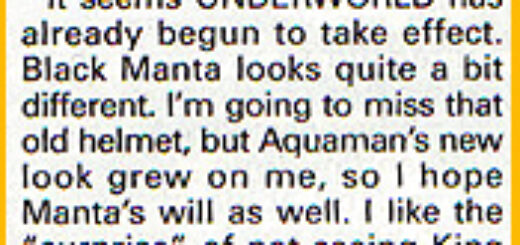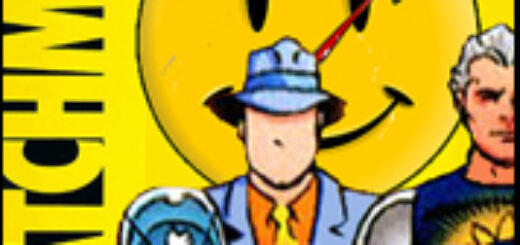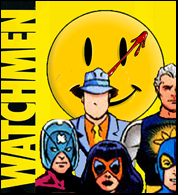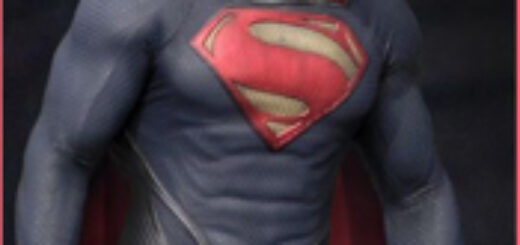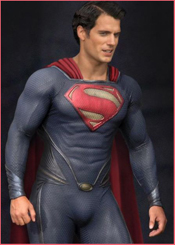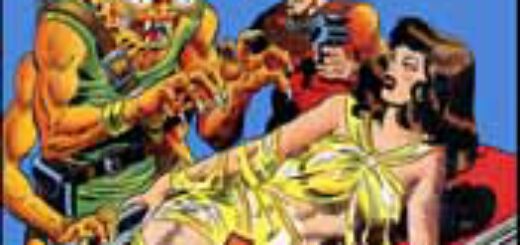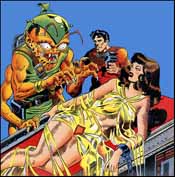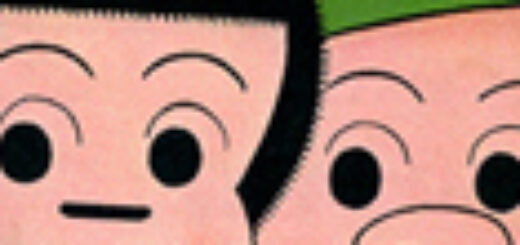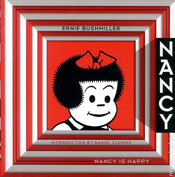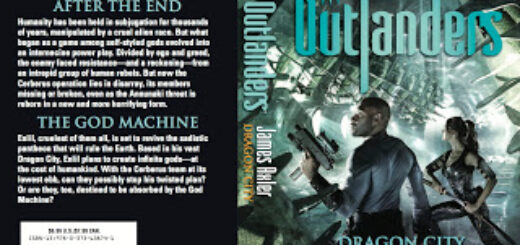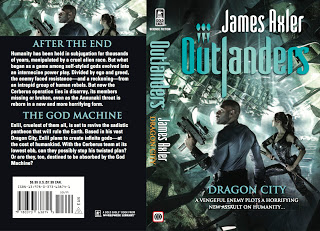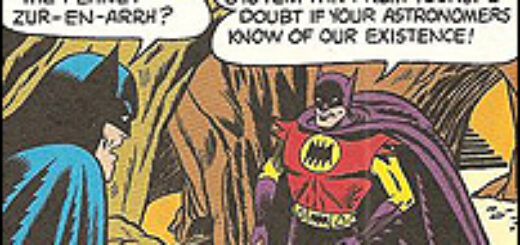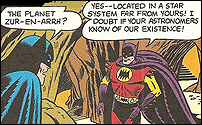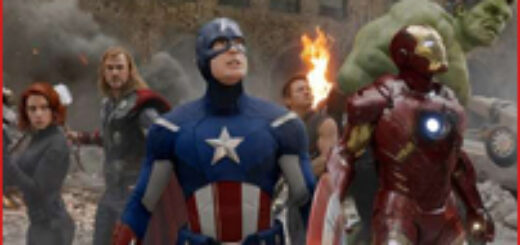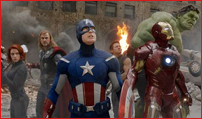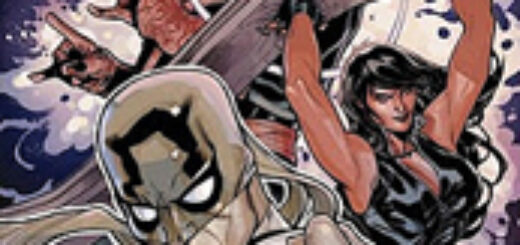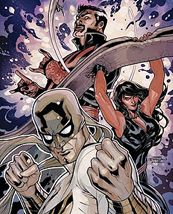Emily S. Whitten: Getting Started in the Comics Industry
 I love comics. I love reading them, thinking about them, discussing them, and even critiquing them. I also love writing them, something I’ve discovered in the last couple of years as I started writing a series of webcomics about characters in upcoming comic book-related movies, which were then published on movie news websites like MTV Splash Page and ReelzChannel. Since that time, I’ve realized that I’d really like to keep writing comics, including, hopefully someday soon, full issues for a major company, to be seen by all the worrrrrrld [insert maniacal laugh here].
I love comics. I love reading them, thinking about them, discussing them, and even critiquing them. I also love writing them, something I’ve discovered in the last couple of years as I started writing a series of webcomics about characters in upcoming comic book-related movies, which were then published on movie news websites like MTV Splash Page and ReelzChannel. Since that time, I’ve realized that I’d really like to keep writing comics, including, hopefully someday soon, full issues for a major company, to be seen by all the worrrrrrld [insert maniacal laugh here].
That may seem like a big leap, but it could happen. After all, most of the people who are or have been involved in professional comics started out just as I did: as ridiculously huge fans of the medium and the characters and stories. I mean, sure, maybe a few here or there got pulled into a job and then discovered they liked it, but for the most part, the people making comics do it because they were fans who, basically, landed their dream jobs through expressing their love of or thoughts on comics.
There are some great public examples of this amongst the current Big Names in comics. They include Geoff Johns, who wrote in to DC Comics as a kid with suggestions for the Superboy storyline. There’s also Kevin Smith, whose lifelong comics fandom landed him a number of roles in comics-writing after he’d already made a name for himself with movies (and he also owns Jay and Silent Bob’s Secret Stash, the first comic book store I ever went to, being a Jersey gal). There’s also Gail Simone, who came to the attention of comics publishers through her website Women in Refrigerators, which critiqued the treatment of female characters in comics, and has since written a weekly column on Comic Book Resources and a lot of great comics about both male and female characters, including well-received stints on the all-female group comic Birds of Prey. (I mention this comic in particular because I think it’s great that after Simone expressed her opinion on a certain issue in comics, she had the opportunity to address that issue by writing a number of female characters.) And let’s not forget Mark Waid, whose studio tour on Comic Book Resources reveals just how much of a fan collector he is, as well as giving us this quote about a three-page sequence from Flash #0 that hangs on his wall: “[it’s] the scene where the adult Wally West meets his ten-year-old self and tells the boy that no matter how rotten his young life seems or how hard the days are to get through, when he grows up, every wish he’s ever wished for will come true. It’s hands-down my favorite sequence I have ever written because – and I say this in all sincerity – I often dream about being able to travel back in time and tell young Mark Waid that same thing.”
Aw.
Of course, compared to these greats and all of their former-fan-now-professional companions, including my esteemed fellow columnists at ComicMix, I wouldn’t say I’ve had too much of a “career in comics” to date. But like, I suspect, at least a few big names today, I have gone from being “just a fan” to being much closer to where I’d like to be in the industry, and have high hopes of continuing along that trajectory in the future. I know that a lot of other fans have similar hopes. So I thought I’d take a couple of minutes to look back at my own experience with comics so far and see how it’s progressed.
As a kid I hadn’t read many comics, and didn’t even know there were such things as “comic book stores” devoted to (gasp) just that medium. There were a few comics in the house that belonged to my oldest sister – the ones I remember being some old collections of Archie and some individual issues of Richie Rich – and I did read those few books countless times, and remember being enamored of both the funny and entertaining stories and the way the illustrations complimented and enhanced them. But I didn’t lack for reading materials, with an English teacher for a mom and two older sisters who loved books, so I never went looking for more comics.
Television, however, was a different matter. You didn’t have to go out and find television shows – they came to you! So I grew up on a healthy mix of cartoons like Teenage Mutant Ninja Turtles, ThunderCats, X-Men: The Animated Series (I still love the theme song!), DuckTales and Darkwing Duck, Batman: The Animated Series, and countless others, most of which either started as or ran concurrently with comic books (although I didn’t know it at the time). I also, thanks to my dad, got a healthy dose from an early age of adventure and comics-related shows and movies he loved, including Sky King, The Lone Ranger, The Green Hornet, and the Christopher Reeve Superman movies. Fast forward a few years, and I was addicted to Lois and Clark: The New Adventures of Superman (and even later, I got hooked on Smallville. Apparently I can’t resist on-screen Clark Kent). So comics have always been a part of my life, and I’ve always been a fan, but I didn’t realize it.
In 2008, that all changed. Thanks to an ex who suggested we go to the local comic book store for Free Comic Book Day, I started getting interested in collecting paper comics. On that fateful day he recommended a character that “I think you’ll like,” i.e. Deadpool; and after flipping through a couple of issues, I was completely hooked. In the following month I acquired and read all the Deadpool books I could find (as well as a slew of other comics, both new and old), and, in a joking conversation with the ex in which I was pretending to answer questions as Deadpool, I think I said something like, “wouldn’t it be funny if Deadpool was online answering questions?” and he said, “You should totally do that,” and thus, the first entry of Ask Deadpool was born. I made up the first few questions myself; and by the next day, people were writing in. I’ve now been regularly answering questions online as Deadpool for four years.
I’ve never had much of an interest in writing fanfiction generally, but with comics, it feels a little different. In a strange way, the comics industry could be looked at as the ultimate repository for quality fanfic (except that as it’s published, it becomes canon). There are so many professionals that got their start playing in sandboxes that were built by previous professionals that writing a comic book character non-professionally feels less like fanfic and more like practicing to join the fun. Sure, my Ask Deadpool writing is still fanfic (until I take over Deadpool at Marvel and write it for the next 20 years, mwahahaaaaa), but it’s different than someone writing about a closed universe such as, say, the Harry Potter series. Not only is writing comics fanfic a great way to practice writing previously published characters’ voices, but there’s actually the chance that all that practice might someday be put to use, professionally.
And there’s also the chance that in writing about something you love, you will accidentally become known as a gigantic Deadpool fan to everyone you know and many people you don’t, which will result in a friend getting a cool Deadpool print signed to you by one of the best inkers in the business (hey-oh, Nathan Massengill!), and you will be so excited about it that you will get it framed, and send a thank you email and photo of the framed print to the inker, and subsequently become friends with the inker, who incidentally convinces you to go to a comic con and introduces you to a bunch of other cool people in comics, and soon other fans and all these people who actually work in comics will know you as the biggest Deadpool fan ever, and this turns out to be a pretty good thing.
Because then you will turn out to be “the most passionate Deadpool fan” that a movie news site has encountered, and will be asked to write a fan article about Deadpool for them, at the same time that you just so happened to have started writing comic strip scripts using Deadpool and other characters to commentate on current pop-culture news, and have found another fan who’s a great artist and has agreed to draw the comics, and it turns out that you’ve already written a script that exactly fits the topic of the article. And the news site likes it, and want to see more.
That’s how I ended up having webcomics published on popular movie news websites. (Although it’s also important to know your own value and not be afraid to pitch something. My Avengers three-part series ran on MTV Splash Page because I actually pitched it to the editor, rather than him finding me.) The same passion for comics and network of people and happenstances has also led to me meeting the folks here at ComicMix and being invited to write a weekly column; and to me meeting another writer who has already had several comic scripts published professionally, and with whom I am now plotting out the greatest comic series ever created (well we think so, anyway). And although I can’t predict the future, I have high hopes that for me, it will hold an abundance of work in comics.
The interesting thing here is, until recently I didn’t really sit down and think to myself, “hey, maybe I could actually write comics. Like, professionally.” Instead, I was just having fun with something I enjoy, and expressing a passion for characters and a medium I’ve come to love. As it turns out (I think, and evidence suggests), this is a pretty good way to get started in comics, and the more I think about what I’d like to write in comics, the more ideas I have. Along with the greatest comic series ever created, I’d love to write Deadpool for Marvel someday (after much more practice, perhaps!) and I’ve got a Superman story in my head that I think would knock people’s socks off. And that’s just what’s percolating in my brain right now. But really, whatever happens in my future, I’m overjoyed that I am where I am today, writing about a medium I love and interacting with people who keep me inspired, and plan to continue to write columns, and webcomics, and anything else people will let me write professionally, for as long as I can. And maybe, if you’re a passionate fan like me, you can do that too! Servo Lectio!
Wednesday Morning: Mike Gold Covers Covers

